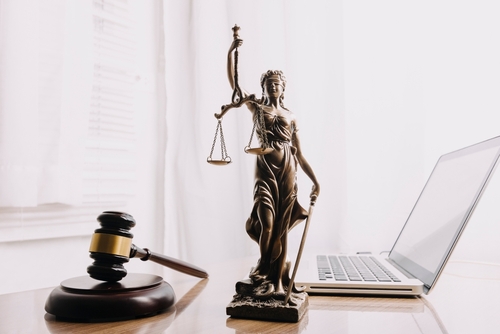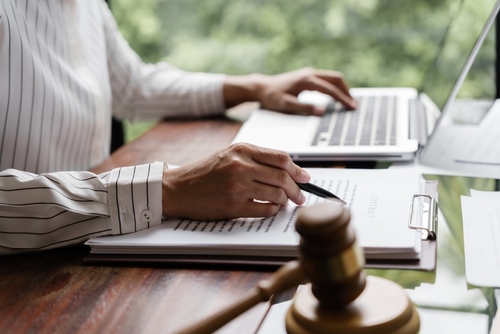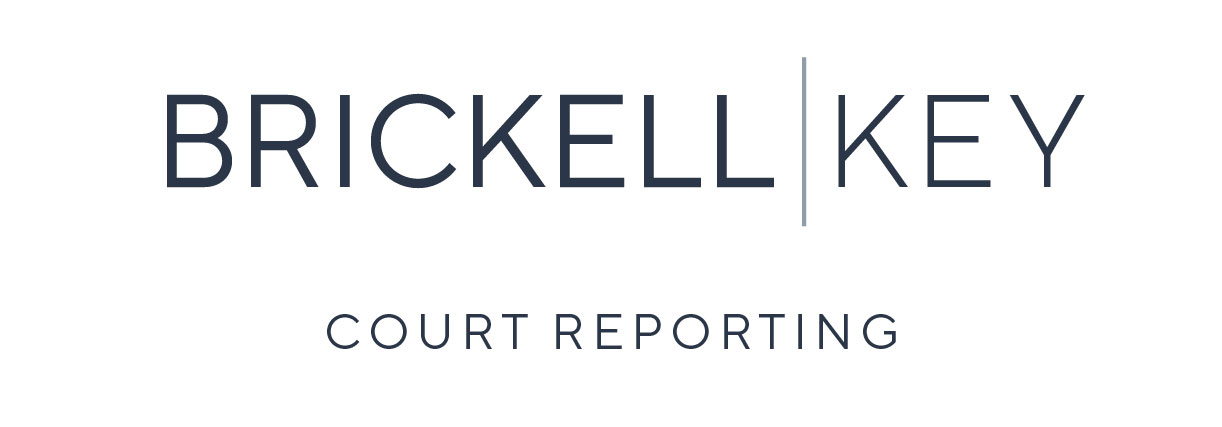The Vital Role of Miami Court Reporters
In the intricate tapestry of Miami’s legal system, Miami court reporters serve as foundational pillars, capturing the spoken words of legal proceedings with meticulous accuracy. The failure or success of these professionals to record every declaration, motion, or argument can significantly sway the scales of justice.
These transcripts are not merely records; they are vessels preserving the sanctity of the legal dialogue, essential for attorneys, judges, and jurors as references that guide them through the complexities of adjudication.

Varying Errors and Their Potential Implications
The potential for errors by Miami court reporters is a reality that can manifest in several ways, each with its consequences:
Typographical Errors
Although often dismissed as trivial, typographical errors can significantly distort the facts. A single omitted letter or a misplaced word could misrepresent testimony, potentially altering the outcome of a case. For example, a mistyped age or dollar amount in a court document could lead to unfair settlements or judgments.
Misinterpretation and Mishearing
In the robust dynamics of a Miami courtroom, important statements can be obscured by poor acoustics, accented speech, or overlapping conversations. The Miami court reporter’s challenges to distinguish and transcribe such speech accurately can be monumental, with the potential to inadvertently alter the intended meaning of crucial testimonies.
Omissions
Courtroom dialogue unfolds quickly, with attorneys and witnesses delivering rapid sequences of information. If a Miami court reporter fails to capture a portion of this dialogue, the resulting gaps in the transcript could obscure the legal narrative and hinder justice.
Formatting Inconsistencies
The correctness of a transcript’s format is pivotal. Should a Miami court reporter misattribute a statement to the wrong individual or fail to denote a change in speakers, the ensuing confusion can complicate legal analysis, possibly leading to procedural disputes.
The Domino Effect of Reporting Errors
The consequences of inaccuracies by Miami court reporters extend beyond the individual case to the broader legal community and the general public. The legitimacy of the entire judicial system hangs in the balance, tethered to their ability or failure to provide unfailing documentation.
Legal Outcomes
Miami court reporters’ errors can impact verdicts, as appellate courts rely heavily on transcripts for reviewing cases. Inaccurate transcripts can jeopardize appeals, affect case law, and in severe instances, lead to wrongful convictions or the release of culpable individuals due to procedural errors.
Trust in the Judicial System
The sanctity of the Miami legal system is inherently linked to the accuracy of court reporting. Repeated mistakes undermine the public’s confidence in legal processes, planting seeds of distrust that can flourish into contempt for the rule of law.
Financial and Emotional Strain
The cost of rectifying a Miami court reporter’s mistake is not limited to the monetary; it often includes intangible expenses like stress, frustration, and a loss of time for all parties involved. Litigants may suffer through added pressure and uncertainty, extending the already arduous journey through the legal labyrinth.
Proactive Measures and Corrective Strategies
In Miami’s bustling courtrooms, proactive safeguards are diligently employed to minimize errors and uphold courtroom integrity.
Preventative Practices
Miami court reporters are subjected to rigorous training, not only in stenography but also in understanding legal terminology and procedure. Continuous education is a staple in their profession, ensuring that their skills and knowledge evolve in tandem with the legal field’s complexities.
Technological advancements, including stenographic machines and software capable of high levels of accuracy and real-time transcription, serve as both tools and guardians of veracity for Miami court reporters. Redundant recording devices ensure that, even if one system fails or captures misleading information, another can supply the needed clarification.
Peer evaluations are also integral. Professional associations and court reporting firms frequently conduct reviews of work, fostering a culture of meticulousness that reinforces the pursuit of faultlessness.
Remedial Measures
Should an error be discerned, myriad steps are in place for corrective action:
Review and Amendment
Upon detecting discrepancies, concerned parties can request a review of the transcript. Access to audio recordings is vital during this process, allowing Miami court reporters to cross-reference their transcripts and make the necessary adjustments.
Legal Recourse
There are avenues for legal recourse if a mistake by a Miami court reporter potentially impacts a case’s outcome. A party can file an appeal citing transcript inaccuracy, offering the corrected record as critical evidence to alter the initial ruling.
Professional Accountability
Formal mechanisms for accountability exist within the court reporting community. Miami court reporters found to be at fault for serious or chronic inaccuracies can face professional repercussions, including mandatory continuing education, supervision, and in extreme cases, suspension or revocation of certification or licensure.

The Quest for Perfection in Court Reporting
Despite the innate human capacity for error, Miami court reporters continuously strive for perfection. Their work demands unwavering attention to detail, a commitment to the integrity of their profession, and an acute awareness of the importance of the legal record.
Technological Partnerships
Innovative technologies, ranging from advanced stenography machines to sophisticated audio-synchronization software, are indispensable partners for Miami court reporters. These tools assist in capturing verbatim accounts of legal proceedings, offering a safety net for human limitations. The adoption of computer-aided transcription and real-time reporting also accelerates the availability of transcripts, essential for swift legal processes.
Ethical Diligence
The professional ethics governing Miami court reporters are stringent. Confidentiality, objectivity, and accuracy form the ethical pillars that guide them, cementing their role as neutral custodians of the record. These principles ensure that court reporters approach every assignment with the gravitas it deserves and are ever mindful of the trust placed in their work.
The Human Touch
While technology offers support, the human element remains irreplaceable. The finesse with which Miami court reporters interpret non-verbal cues, manage technical legal language, and navigate the nuances of courtroom proceedings is beyond the capability of machines. Each deposition, hearing, and trial is a testament to their human judgment and expertise.
Conclusion: A Commitment to Justice Through Precision
Miami court reporters are more than transcribers; they are chroniclers of justice. Theirs is a role defined by the need for precision and the pursuit of a perfect record. It is a role that, by necessity, demands constant vigilance—both in capturing the spoken word and in the subsequent verification of the written transcript.
Mistakes by Miami court reporters are a rarity, not a routine, thanks to the layers of prevention and correction. Yet, they are treated with utmost seriousness when they do occur, with a thorough understanding of the potential consequences.
Through steadfast dedication, ongoing education, and an unwavering commitment to ethical practice, Miami court reporters embody the diligence required to uphold the bedrock of justice—reliable, accurate, and complete records of the words that pass through the halls of law.



